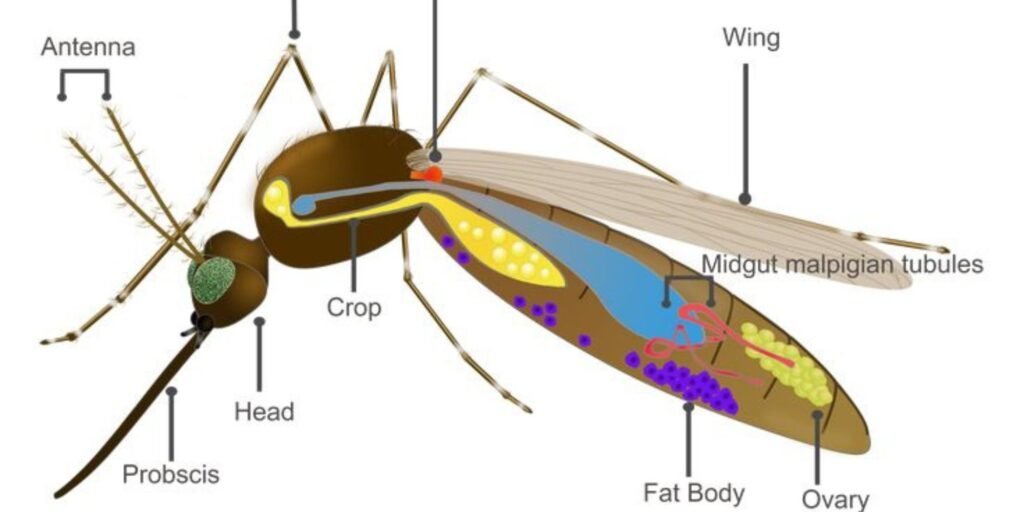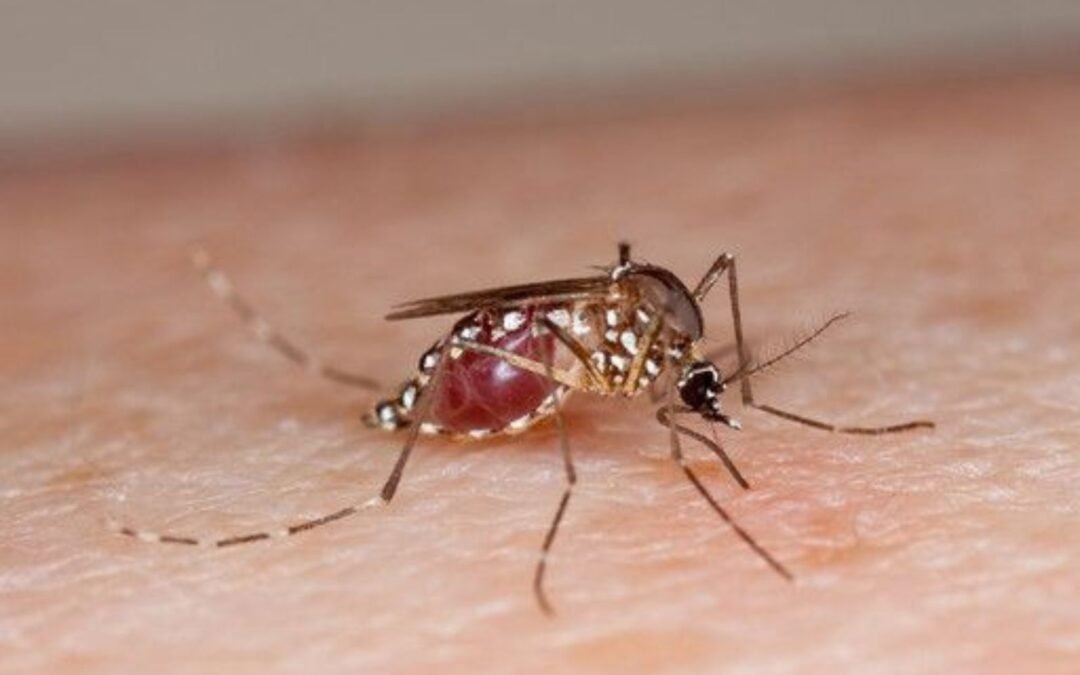Overview
Mosquitoes have long been annoying, often leaving itchy bites that can linger for days. While many people wonder if mosquitoes suffer any consequences after delivering these bites, others speculate whether biting seals their fate. This blog will explore the biology of mosquitoes, the mechanics of biting, and reveal whether do mosquitoes die after they bite you. Understanding how mosquitoes feed, the anatomy behind their bites, and their life cycle will help clarify the truth about their fate after feeding on your blood.
By the end of this article, you’ll clearly understand how mosquitoes operate and why they continue to thrive, even after biting millions of people daily.
Understanding the Mosquito’s Bite
Mosquitoes are often regarded as one of the most annoying creatures on Earth, largely due to their biting behavior. However, their bites are also critical to their life cycle, and understanding why mosquitoes bite, how they do it, and how their anatomy supports this process can give us insight into how they function and the potential consequences for both the mosquito and the person being bitten.
Why Do Mosquitoes Bite?
Not all mosquitoes bite humans or animals, but it is the female mosquito that is responsible for the bite. Male mosquitoes feed primarily on nectar and plant juices, as they do not need the protein found in blood for reproduction. Females, on the other hand, require the proteins and iron found in blood to develop their eggs. This is why female mosquitoes bite animals, including humans, to obtain a blood meal.
The biting process plays an essential role in their reproductive cycle. After obtaining a blood meal, the female mosquito uses the nutrients to nourish her developing eggs. Once the eggs are mature, she will seek out a suitable place to lay them, usually in stagnant water, where the larvae can hatch and continue the cycle.
Anatomy of a Mosquito Bite

When a mosquito lands on its host, it pierces the skin with a specially adapted mouthpart called a proboscis. The proboscis contains six needle-like structures that penetrate the skin to locate blood vessels. These needles allow the mosquito to draw blood efficiently while injecting saliva that contains anticoagulants to prevent clotting.
This saliva is the culprit behind the itchy reaction caused by a mosquito bite. Your body’s immune system releases histamines to counteract the foreign substances in the saliva, resulting in redness and swelling at the bite site.
Why Do Mosquitoes Bite?
Female mosquitoes bite. Male mosquitoes feed on nectar and other plant-based sugars, as their primary role is reproduction. On the other hand, female mosquitoes require the proteins and nutrients found in blood to develop and lay their eggs.
Once a female mosquito has consumed enough blood, she retreats to a sheltered location to digest the meal and produce eggs, ensuring the continuation of her species.
Does the Act of Biting Harm Mosquitoes?
The short and factual answer is no. Mosquitoes do not die after they bite you. Unlike bees, which often perish after stinging because their stinger becomes lodged in the skin, mosquitoes are evolutionary experts in drawing blood and escaping unharmed. Their entire anatomy is designed for efficient feeding, minimizing the risk to themselves during the process.
A mosquito might only die after biting you if it is swatted mid-feed or immediately after. Otherwise, the act of biting has no dire consequences for the mosquito.
Why Do Mosquitoes Survive After Biting?
Mosquito survival after biting is rooted in millions of years of evolution. Their adaptive features and behaviours ensure they remain effective bloodsuckers and prolific breeders. Below are the key reasons mosquitoes thrive despite facing human retaliation.
Specialized Mouthparts
The proboscis is designed to puncture the skin with minimal resistance, reducing the chances of detection. These needle-like structures are flexible yet strong, allowing mosquitoes to feed quickly and escape before being noticed.
Anti-Detection Saliva
Mosquito saliva contains compounds that make their bites less detectable. By numbing the area and preventing clotting, they can feed uninterrupted for longer periods. This biochemical trickery significantly improves their chances of survival.
Quick Feeding and Escape
A mosquito’s feeding process usually lasts a few seconds to a few minutes. They’re quick to fly away once they’ve had their fill, making it difficult for humans to notice or retaliate in time.
Lightweight and Agile
Mosquitoes are incredibly light and nimble. Their small size and ability to manoeuvre in tight spaces give them an advantage when evading threats. Even if spotted, their agility makes it hard to swat them successfully.
Do mosquitoes die after they bite you :What Happens After a Mosquito Feeds?
Mosquitoes don’t stop at just one bite. Their life cycle and feeding habits ensure the continuation of their species, making them one of the most persistent pests on the planet.
Reproductive Cycle
After feeding, female mosquitoes use the ingested blood to nourish and develop their eggs. Depending on the species, a single blood meal can result in tens to hundreds of eggs. These eggs are laid in stagnant water and hatch into larvae within a few days.
Feeding Frequency
A single female mosquito may bite multiple hosts within her lifespan, which ranges from a few days to several weeks. If she depletes her current blood supply, she’ll seek out another host to ensure she can produce additional eggs.
Disease Transmission
One reason mosquitoes are considered dangerous is their ability to transmit diseases. During feeding, mosquitoes can transfer pathogens like malaria, dengue fever, and the Zika virus between hosts. This makes them responsible for hundreds of thousands of deaths annually worldwide.
Do mosquitoes die after they bite you :Why Do People Think Mosquitoes Die After Biting?
The notion that mosquitoes die after biting likely stems from confusion with bees, which perish after stinging. A bee’s stinger is barbed, which causes it to become lodged in the skin, fatally injuring the bee as it tries to fly away. Mosquitoes, however, are anatomically different and face no such consequence.
Furthermore, people often associate the act of swatting a mosquito after its bite with its demise. However, in these cases, the mosquito falls victim to external factors, not the bite itself.
Do mosquitoes die after they bite you :How to Reduce Mosquito Bites

Knowing mosquitoes don’t die after biting should motivate you to take protective measures to minimize their nuisance and potential health risks.
Tips to Prevent Mosquito Bites
- Use Mosquito Repellent
Apply products containing DEET, picaridin, or lemon eucalyptus oil to exposed skin.
- Install Physical Barriers
Use window screens, bed nets, and protective clothing to keep mosquitoes at bay.

- Eliminate Breeding Grounds
Remove standing water from buckets, gutters, and plant saucers to disrupt their reproductive cycle.
- Opt for Mosquito Traps
Electronic traps and bug zappers can reduce local mosquito populations effectively.
- Stay Indoors During Peak Hours
Mosquitoes are most active during dawn and dusk, so avoid outdoor activities whenever possible.
Implementing these precautions can significantly reduce your chances of being bitten.
Do mosquitoes die after they bite you :The Bottom Line on Mosquitoes After Biting
Mosquitoes do not die after they bite you. Their feeding process is carefully adapted for survival, allowing them to continue biting and reproducing throughout their short but impactful lives. Understanding their biology and behaviour can help you take effective precautions and make informed decisions about mosquito control.
If mosquitoes are more than an annoyance where you live, consider exploring professional pest management solutions or advanced mosquito prevention strategies to reclaim your space.

